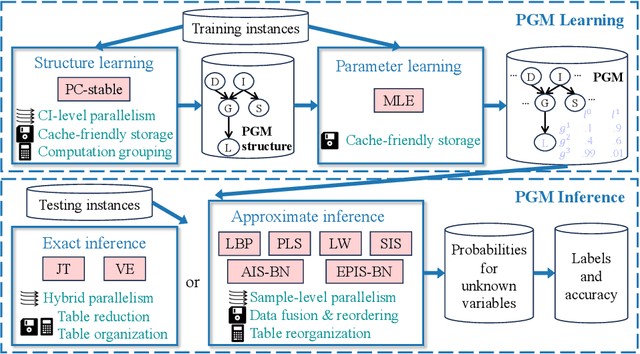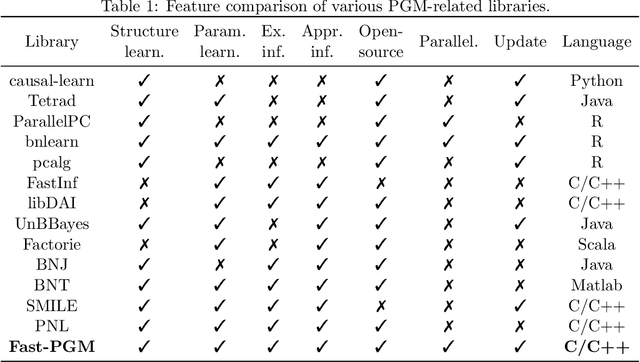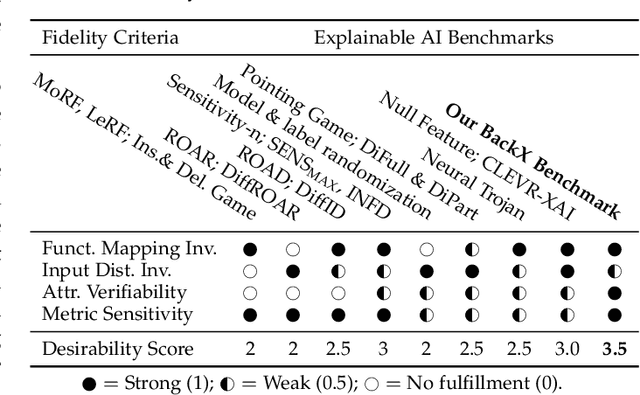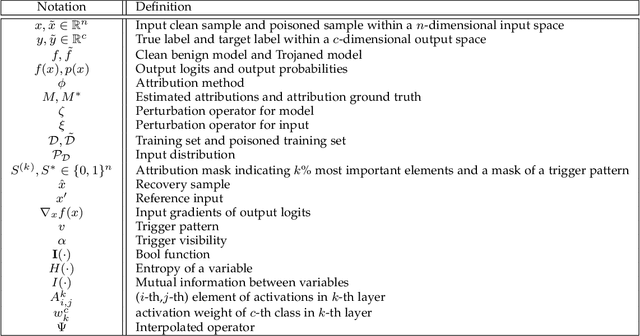Jiantong Jiang
FastBO: Fast HPO and NAS with Adaptive Fidelity Identification
Sep 01, 2024

Abstract:Hyperparameter optimization (HPO) and neural architecture search (NAS) are powerful in attaining state-of-the-art machine learning models, with Bayesian optimization (BO) standing out as a mainstream method. Extending BO into the multi-fidelity setting has been an emerging research topic, but faces the challenge of determining an appropriate fidelity for each hyperparameter configuration to fit the surrogate model. To tackle the challenge, we propose a multi-fidelity BO method named FastBO, which adaptively decides the fidelity for each configuration and efficiently offers strong performance. The advantages are achieved based on the novel concepts of efficient point and saturation point for each configuration.We also show that our adaptive fidelity identification strategy provides a way to extend any single-fidelity method to the multi-fidelity setting, highlighting its generality and applicability.
Fast-PGM: Fast Probabilistic Graphical Model Learning and Inference
May 28, 2024

Abstract:Probabilistic graphical models (PGMs) serve as a powerful framework for modeling complex systems with uncertainty and extracting valuable insights from data. However, users face challenges when applying PGMs to their problems in terms of efficiency and usability. This paper presents Fast-PGM, an efficient and open-source library for PGM learning and inference. Fast-PGM supports comprehensive tasks on PGMs, including structure and parameter learning, as well as exact and approximate inference, and enhances efficiency of the tasks through computational and memory optimizations and parallelization techniques. Concurrently, Fast-PGM furnishes developers with flexible building blocks, furnishes learners with detailed documentation, and affords non-experts user-friendly interfaces, thereby ameliorating the usability of PGMs to users across a spectrum of expertise levels. The source code of Fast-PGM is available at https://github.com/jjiantong/FastPGM.
Backdoor-based Explainable AI Benchmark for High Fidelity Evaluation of Attribution Methods
May 02, 2024



Abstract:Attribution methods compute importance scores for input features to explain the output predictions of deep models. However, accurate assessment of attribution methods is challenged by the lack of benchmark fidelity for attributing model predictions. Moreover, other confounding factors in attribution estimation, including the setup choices of post-processing techniques and explained model predictions, further compromise the reliability of the evaluation. In this work, we first identify a set of fidelity criteria that reliable benchmarks for attribution methods are expected to fulfill, thereby facilitating a systematic assessment of attribution benchmarks. Next, we introduce a Backdoor-based eXplainable AI benchmark (BackX) that adheres to the desired fidelity criteria. We theoretically establish the superiority of our approach over the existing benchmarks for well-founded attribution evaluation. With extensive analysis, we also identify a setup for a consistent and fair benchmarking of attribution methods across different underlying methodologies. This setup is ultimately employed for a comprehensive comparison of existing methods using our BackX benchmark. Finally, our analysis also provides guidance for defending against backdoor attacks with the help of attribution methods.
Fast Parallel Exact Inference on Bayesian Networks: Poster
Dec 08, 2022Abstract:Bayesian networks (BNs) are attractive, because they are graphical and interpretable machine learning models. However, exact inference on BNs is time-consuming, especially for complex problems. To improve the efficiency, we propose a fast BN exact inference solution named Fast-BNI on multi-core CPUs. Fast-BNI enhances the efficiency of exact inference through hybrid parallelism that tightly integrates coarse- and fine-grained parallelism. We also propose techniques to further simplify the bottleneck operations of BN exact inference. Fast-BNI source code is freely available at https://github.com/jjiantong/FastBN.
Fast Parallel Bayesian Network Structure Learning
Dec 08, 2022Abstract:Bayesian networks (BNs) are a widely used graphical model in machine learning for representing knowledge with uncertainty. The mainstream BN structure learning methods require performing a large number of conditional independence (CI) tests. The learning process is very time-consuming, especially for high-dimensional problems, which hinders the adoption of BNs to more applications. Existing works attempt to accelerate the learning process with parallelism, but face issues including load unbalancing, costly atomic operations and dominant parallel overhead. In this paper, we propose a fast solution named Fast-BNS on multi-core CPUs to enhance the efficiency of the BN structure learning. Fast-BNS is powered by a series of efficiency optimizations including (i) designing a dynamic work pool to monitor the processing of edges and to better schedule the workloads among threads, (ii) grouping the CI tests of the edges with the same endpoints to reduce the number of unnecessary CI tests, (iii) using a cache-friendly data storage to improve the memory efficiency, and (iv) generating the conditioning sets on-the-fly to avoid extra memory consumption. A comprehensive experimental study shows that the sequential version of Fast-BNS is up to 50 times faster than its counterpart, and the parallel version of Fast-BNS achieves 4.8 to 24.5 times speedup over the state-of-the-art multi-threaded solution. Moreover, Fast-BNS has a good scalability to the network size as well as sample size. Fast-BNS source code is freely available at https://github.com/jjiantong/FastBN.
 Add to Chrome
Add to Chrome Add to Firefox
Add to Firefox Add to Edge
Add to Edge